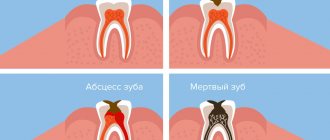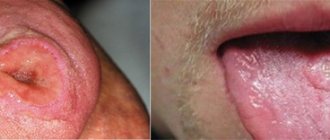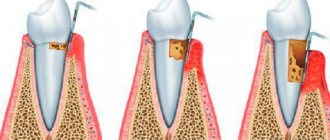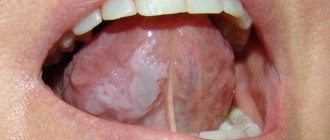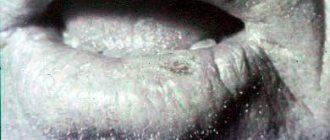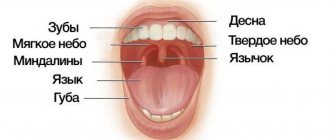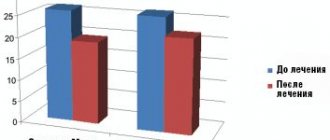| Complex implantation 29900 rub. 47580 rub. Professional dental treatment of any complexity, scientific approach, modern technologies |
Oncology of the breast or thyroid gland, and other types of cancer, as a rule, transfer patients to the category of people who are contraindicated for dental implantation. Most often, when they go to a dental clinic, they are denied the installation of implants, offering an alternative that is considered more suitable for oncology - tooth restoration using prosthetics. The reason for this attitude towards cancer patients is primarily the reluctance to take responsibility. This is not surprising, because surgical intervention for such problems is associated with a certain risk, and therefore requires the highest competence from the doctor.
Where is implantation performed for oncology?
The intake of necessary nutrients into the body promotes recovery, but it is impossible without the normal functioning of the masticatory apparatus. Therefore, restoring chewing function to the maximum extent possible is the primary task that the installation of implants solves. At the same time, atrophy, thinning, fragility of bone tissue and other consequences of cancer, chemotherapy and radiation treatment seriously complicate dental implantation. That is why only the luminaries of implantology, specialists of the highest category, who have not only deep knowledge, but also extensive practical experience, undertake the treatment of patients with oncological diseases. The New White Smile Clinic is one of the few dentists in Moscow where the level of implantologists is so high that it allows dental implantation in complex clinical cases, which include cancer. The clinic’s doctors are ready to help patients who have survived a terrible disease return to normal life.
Oncological alertness in dentistry
Early and timely diagnosis of precancerous diseases and adequate treatment can serve as a real basis for the prevention of cancer of the maxillofacial area, oral mucosa, tongue and lips.
A person comes into contact with the outside world through the oral cavity; accordingly, it is there that inflammatory processes are most likely to occur, which can become the main factors in the development of a tumor.
Oncology of the maxillofacial region accounts for about 15% of tumors in the human body. Cancer of the red border of the lips and oral mucosa (ORM) accounts for about 5% of all malignant tumors.
The importance of timely diagnosis of these tumors is determined not only by the frequency of cases, but also by the peculiarities of the course of these forms of cancer. Despite the fact that tumors of the maxillofacial region are easily accessible for examination and do not require complex diagnostic methods, half of the patients die very quickly, since this group of neoplasms belongs to high-grade tumors that grow quickly and metastasize early.
Precancer is a condition that turns into cancer as a result of a constant change in the properties of cells towards malignancy. Precancer turns into cancer not so much as a result of qualitative changes (time, mass), but rather as a result of changes in the biological essence of cells, the accumulation in them of properties inherent in a malignant cell.
For early diagnosis and detection of diseases, it is important to know the conditions of precancers of the oral mucosa, red border of the lips and skin, as well as the factors contributing to their occurrence.
Factors contributing to the occurrence of precancerous conditions:
- Mechanical irritants : malocclusion, incorrect position of individual teeth, poorly made restorations and dentures, pathological abrasion of teeth, bad habits (holding a pencil, pen, nails, etc. in the mouth).
- Household chemical irritants : spices, highly concentrated solutions of ethyl alcohol, tobacco. The latter has a gross irritating effect on the oral mucosa. When smoking, approximately 20% of tobacco smoke enters the body, which contains a number of products that are extremely irritating: pyridine bases (the transition of nicotine to pyridine is the most harmful side of the action), hydrocyanic acid, cyanide compounds, fatty acids, phenol and tar sediment . Tobacco smoke also contains benzopyrene and arsenic. One of the irritating aspects of smoking is the thermal factor.
- Industrial irritants: alkalis, acids in the form of vapors and aerosols, other chemicals.
- Chronic thermal injury : hot food, repeated exposure to elevated temperatures when smoking: burning the lips with a cigarette (in the tobacco combustion zone the temperature reaches 4000 C), hot air when working in some enterprises.
- Meteorological irritants : a complex of unfavorable environmental factors. These include exposure to sunlight, dust, wind, salt water aerosols in conditions of low temperature and high humidity.
- Biological irritants : these include a number of microorganisms that are pathogenic for humans (yeast-like fungi that cause increased keratinization of the mucous membrane of the tongue, pale spirochete, Koch's bacillus).
- Ionizing radiation : this factor should be taken into account in patients receiving radiation therapy for tumors of one location or another, during which the surrounding mucous membrane of the oral cavity enters the irradiation zone.
One of the main causes of cancer of the maxillofacial area is the unsatisfactory condition of the oral cavity, especially the presence of carious teeth and bad dentures, sharp edges that constantly injure the mucous membrane, causing bedsores and long-term non-healing ulcers.
Signs of malignancy of precancerous conditions:
- Long, sluggish course of the process (the presence of an ulcer that does not heal within 2-3 weeks);
- Failure of conservative treatment;
- An increase in the size of the pathological lesion, despite adequate treatment;
- The appearance of a compaction around or at the base of the pathological focus;
- Bleeding;
- The appearance of dense, enlarged, painless regional lymph nodes.
- The appearance of mobility of one or more intact teeth, accompanied by constant pain;
- Gradually increasing paresis of facial muscles, parasthesia and numbness in the area of the infraorbital and mental nerves;
- The appearance of a formation on the lips or in the oral cavity that does not go away for a long time and tends to increase in size, it can be: a red spot, a whitish spot, an ulcer, a thickening, a growth.
The most reliable prevention of cancer is the elimination of factors favorable to its development and radical treatment of people with precancerous conditions.
An effective means of preventing precancerous conditions of the tongue and oral mucosa is daily oral hygiene, eliminating the dangers associated with carious teeth and low-quality dentures.
Dentist
Elena Gurin
Oncological process as an absolute contraindication to implantation
The progressive development of the oncological process is a contraindication to the installation of dental implants. Implant treatment requires good health. Very often, the development of the disease is associated with exhaustion and destruction of the patient’s body. The body protects itself and, in the fight against tumor diseases, devotes all its resources to maintaining the proper functioning of all life systems.
An additional risk for implant osseointegration is therapy performed during cancer treatment. Contraindications for implantation are chemotherapy, radiation therapy and surgical treatment, which reduce overall immunity. In addition, they cause the death of cells, including those responsible for immunity, and may be an indirect cause of infection of the tissues around the implant after its implantation.
During the period of remission, when health indicators have stabilized, an attempt at implantation can be made. But it is important to understand that the risks in this case are slightly higher than in patients without a history of cancer.
If the tumor is located in the maxillofacial area
In this case, planning orthopedic treatment is more difficult than in the first situation. Of course, if the tumor is localized in the bone tissue of the jaw, there can be no talk of making any more or less serious prosthesis other than crowns. After therapy or radical removal of the tumor, the configuration of the jaw or dentition may seriously change, and the prosthesis will become irrelevant.
Even if the cancer is not located in bone tissue, it should be treated with caution. Perhaps dental prosthetics for oncology with this arrangement should be postponed. The motivation is exactly the same: after eliminating the tumor, the nature of the operation of the maxillofacial apparatus can significantly change, which will make the previously manufactured prosthesis ineffective and even harmful. Therefore, a consultation in an oncology hospital is required, as well as close interaction between an oncologist and an orthopedic dentist.
Implantation during remission
To minimize the likelihood of rejection of implants installed after successful treatment of a serious illness, it makes sense to opt for gentle implantation techniques that are less invasive than the classic protocol.
- Single-phase implantation
Suitable for patients who are missing several teeth. The principle of implantation is without incisions, only through thin punctures in the mucous membrane. The wound surface is minimal. Healing is very fast and easy. This is an immediate loading implantation protocol in which the patient immediately receives a temporary prosthesis. It is involved in chewing and provides load on bone tissue, promoting better nutrition and regeneration.
- Complete prosthetics on All-on-4 (All-on-6) implants
The method is suitable for patients who have lost a large number of teeth, or those remaining after cancer treatment in such a condition that they require removal. The protocol involves installing 4 or 6 implants in a completely empty jaw, followed by fixing a complete denture of 10-12 teeth on them. This operation uses small implants; their installation causes significant trauma to the bone tissue. The prosthesis is fixed on the day of installation and implants, and after 3-4 days the patient fully uses the new teeth.
Tumor localization outside the head and neck
If the cancer is located outside the maxillofacial area, this is a very conditional contraindication to orthopedic treatment. The decisive factors here are the nature of the neoblastoma formation and the treatment taken in connection with it.
The main concerns in this case may be related to a violation of the blood clotting process. Very often, to prepare a patient for removable or fixed prosthetics, it is necessary to resort to preliminary surgical preparation, which is necessarily accompanied by local bleeding.
If a tumor disease affects the hematopoietic system, or the patient receives radiation during treatment, blood clotting is significantly impaired. As a result, this can lead to local bleeding that poses a great threat to the patient’s life. Therefore, in such cases, manipulations associated with rupture of blood vessels should be avoided whenever possible.
Separately, you should learn about tumor diseases of the bones and breast cancer with metastases to bone tissue before planning surgical preparation. The fact is that very often such patients are treated with drugs from the bisphosphonate group. Long-term use of bisphosphonates leads to the fact that extensive bone necrosis may occur during tooth extraction or preparation of the alveolar ridge for a prosthesis.
If dental prosthetics for oncology is carried out against the background of immunosuppression or therapy that suppresses the immune system, you should work very carefully when preparing and forming the basis of the prosthesis. The formation of microtraumas and rubbing in this case can lead to long-term non-healing lesions.
